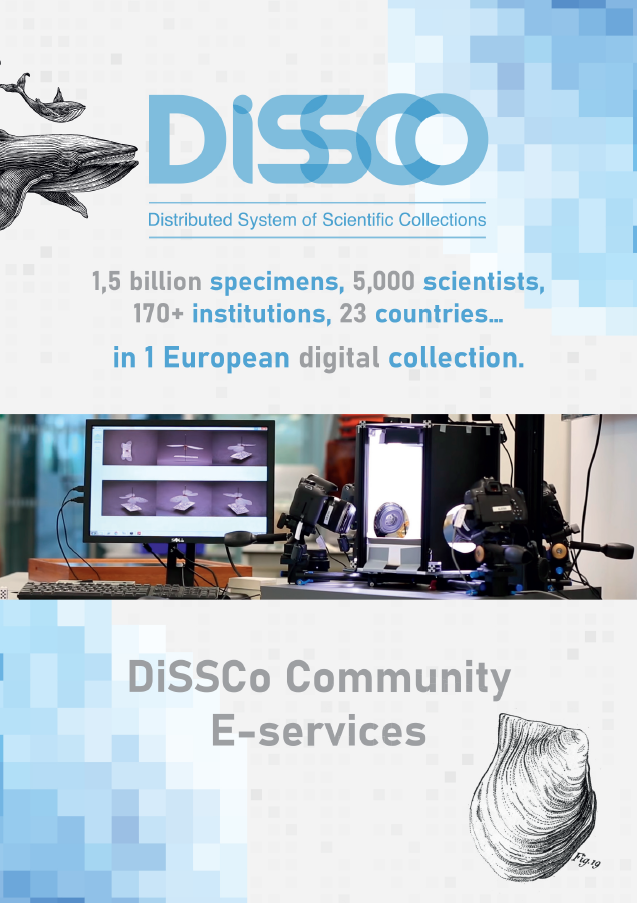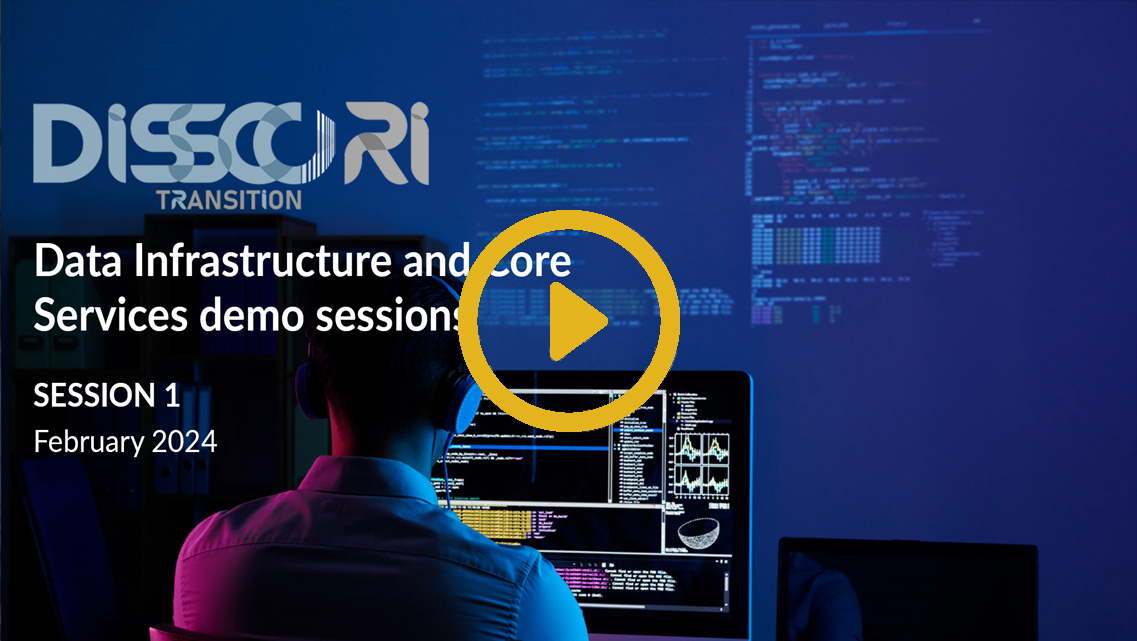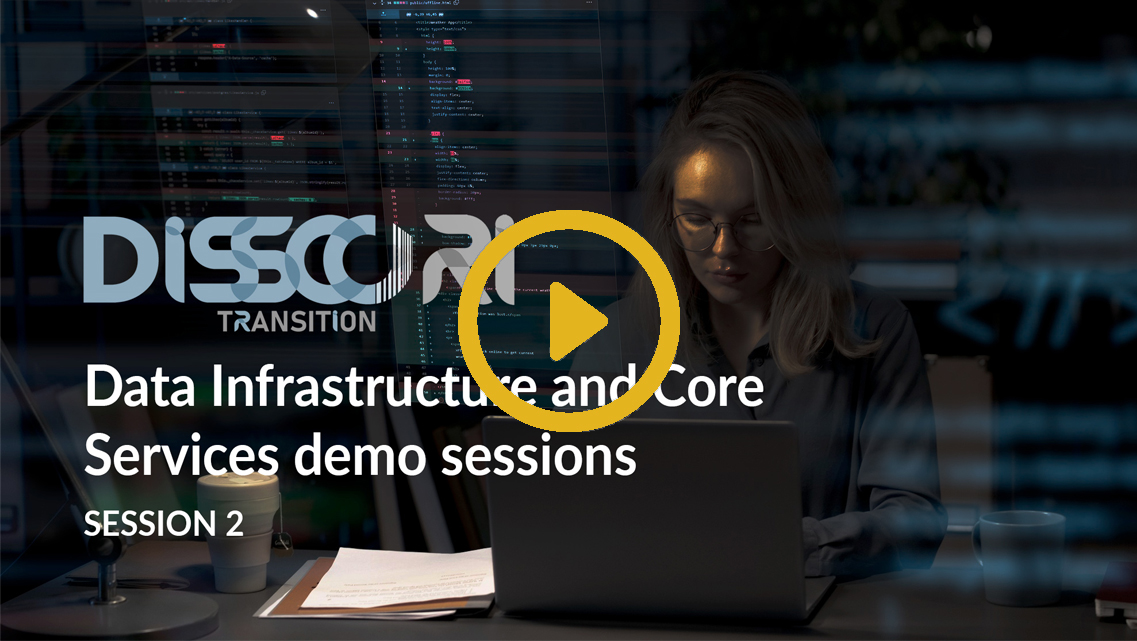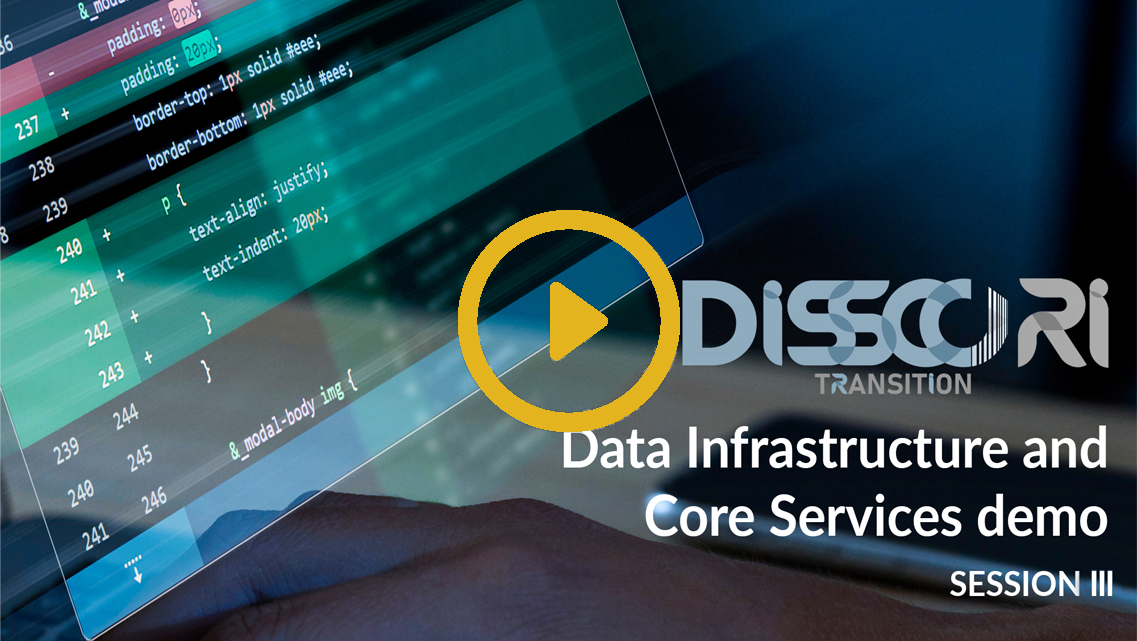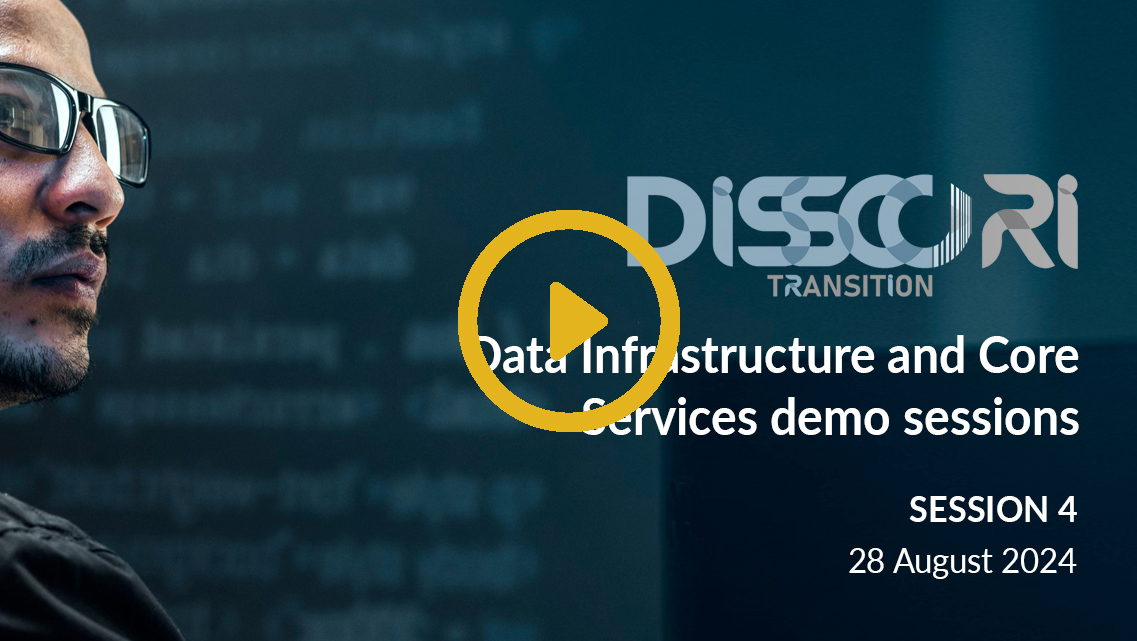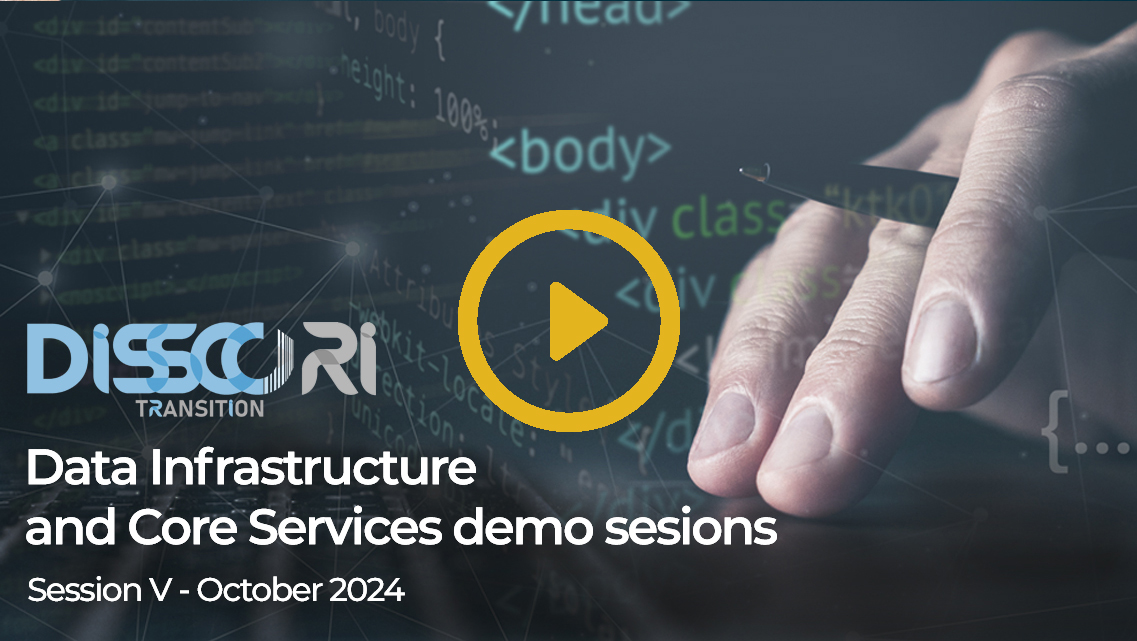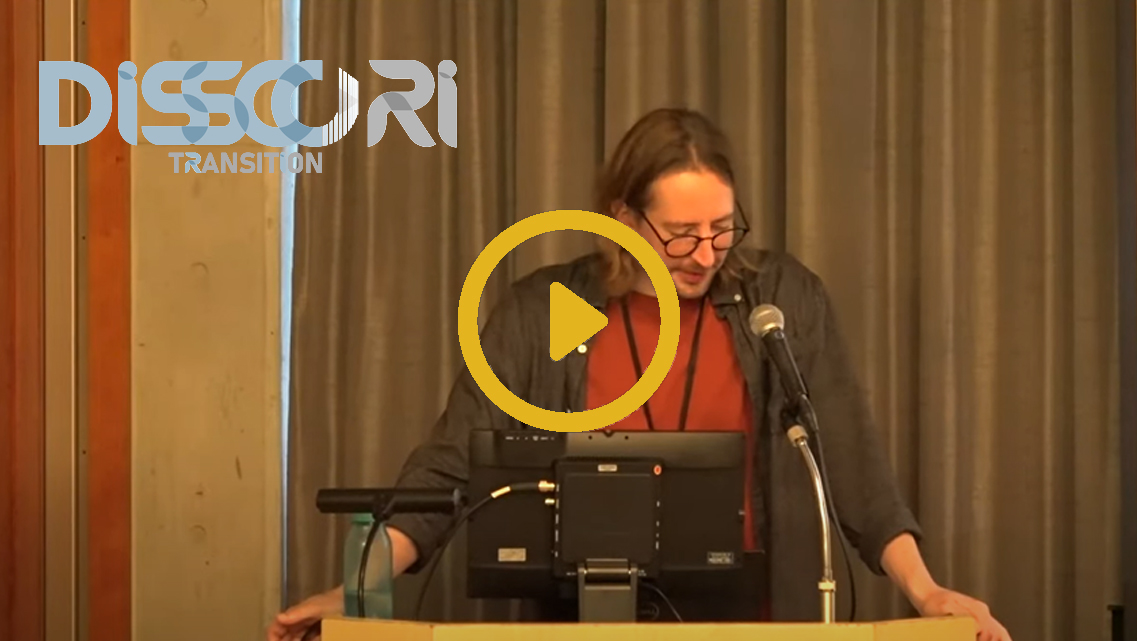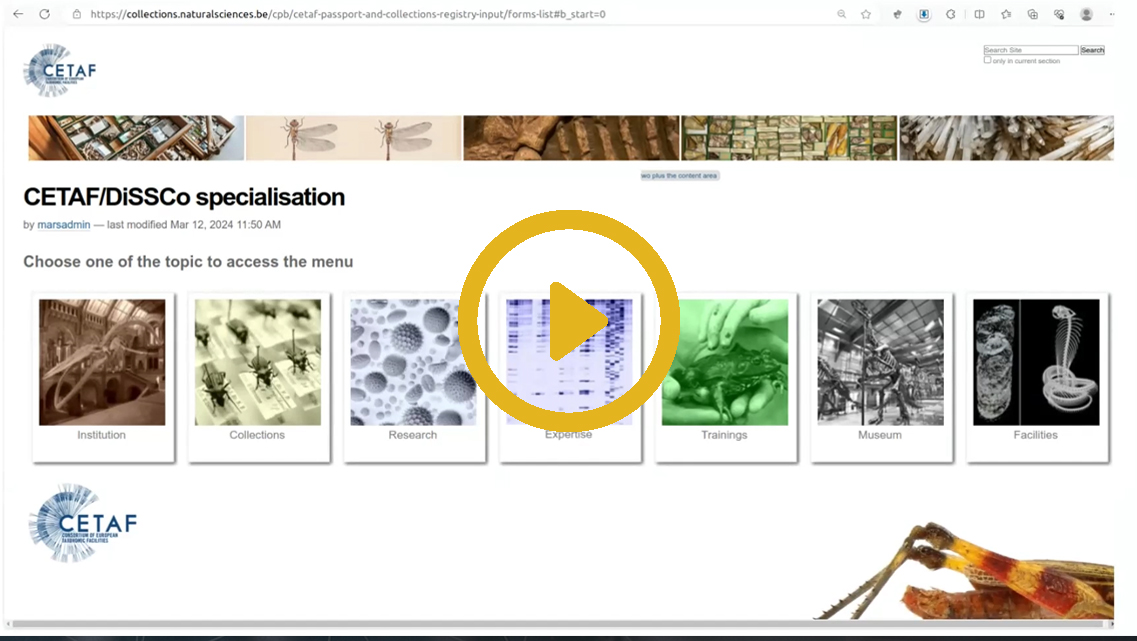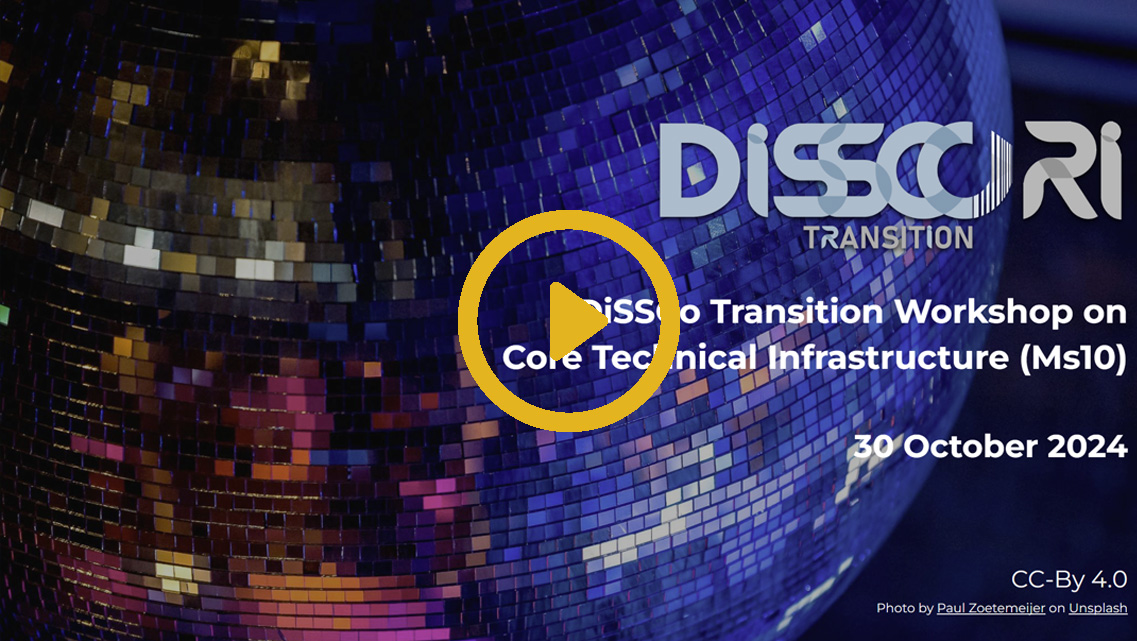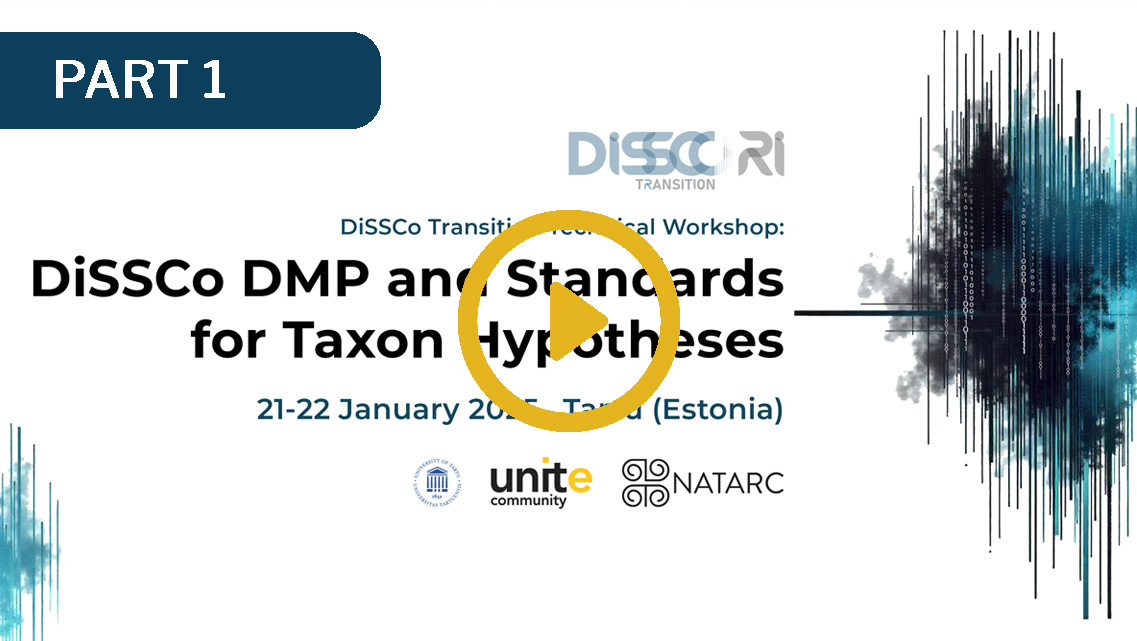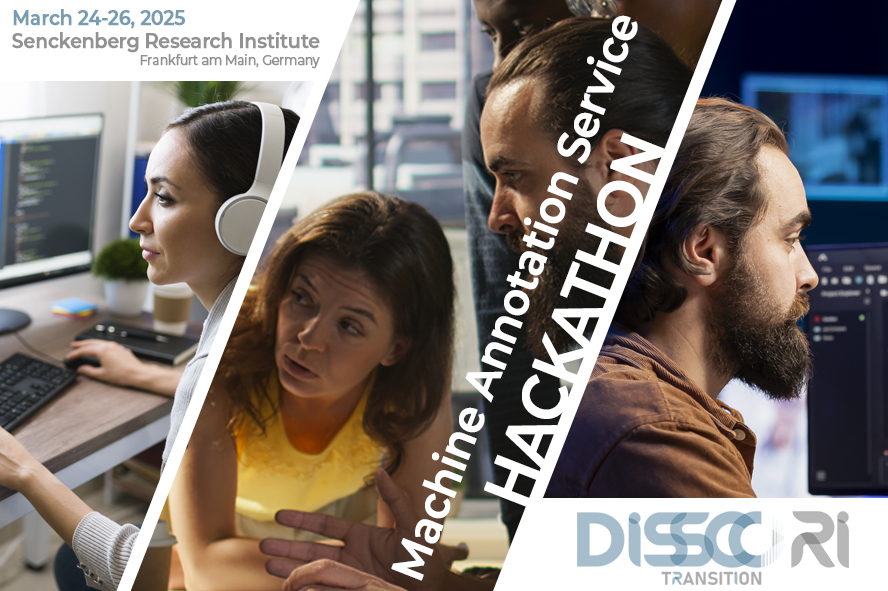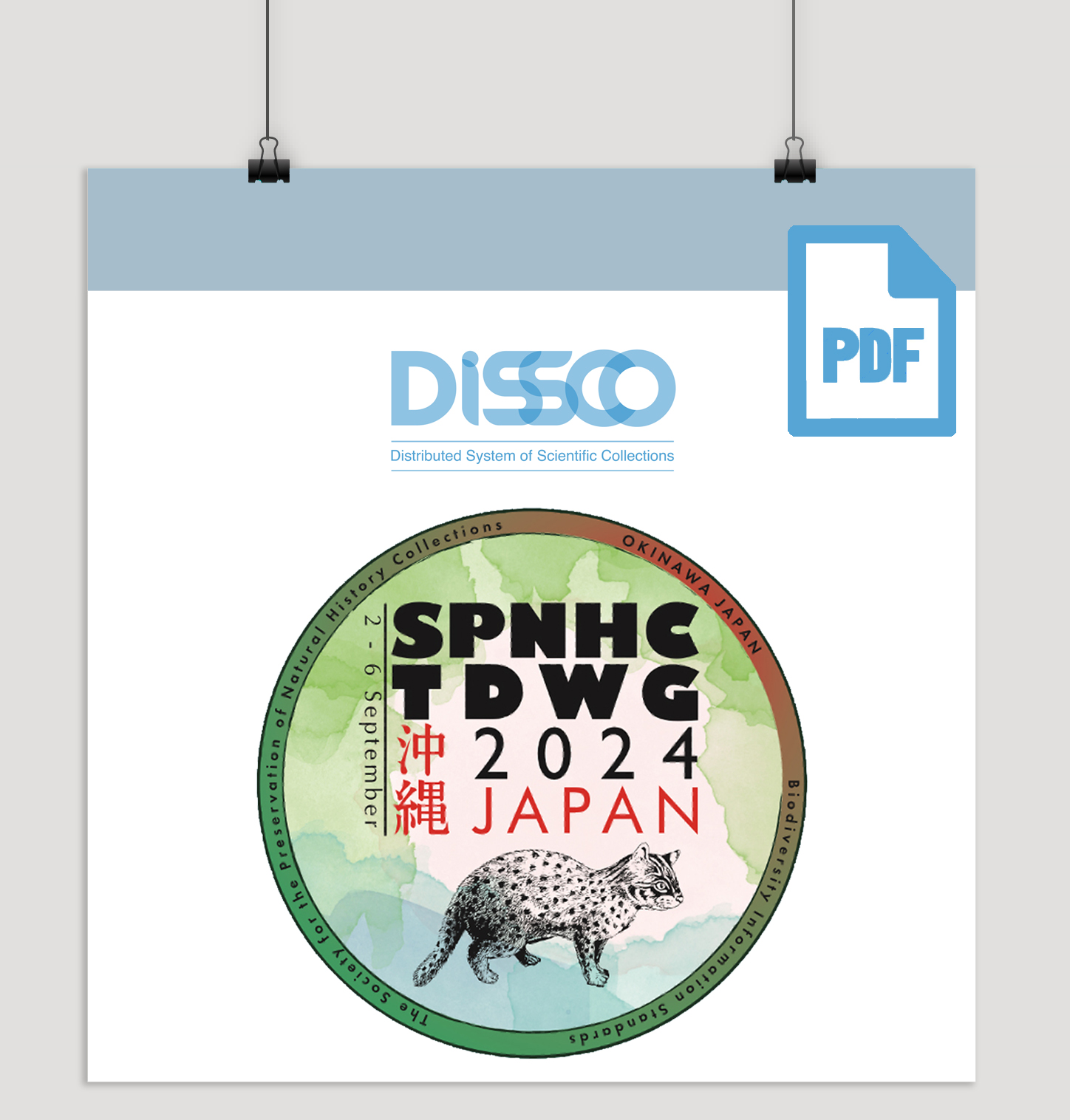Knowledge Area
Welcome!
Welcome to the Knowledge Area of DiSSCo Transition (DTP), the place where you can find all the outputs from the project: workshops, demos, videos, publications, and more.
Just scroll down to access the contents of the page. If you are not familiar with DiSSCo, scroll all the way down. We have some basics in there for you!
NOTE: If you are looking for specific Deliverables and/or Milestones from DTP, then you better go to DTP’s Project Outcomes page.
Latest addition!
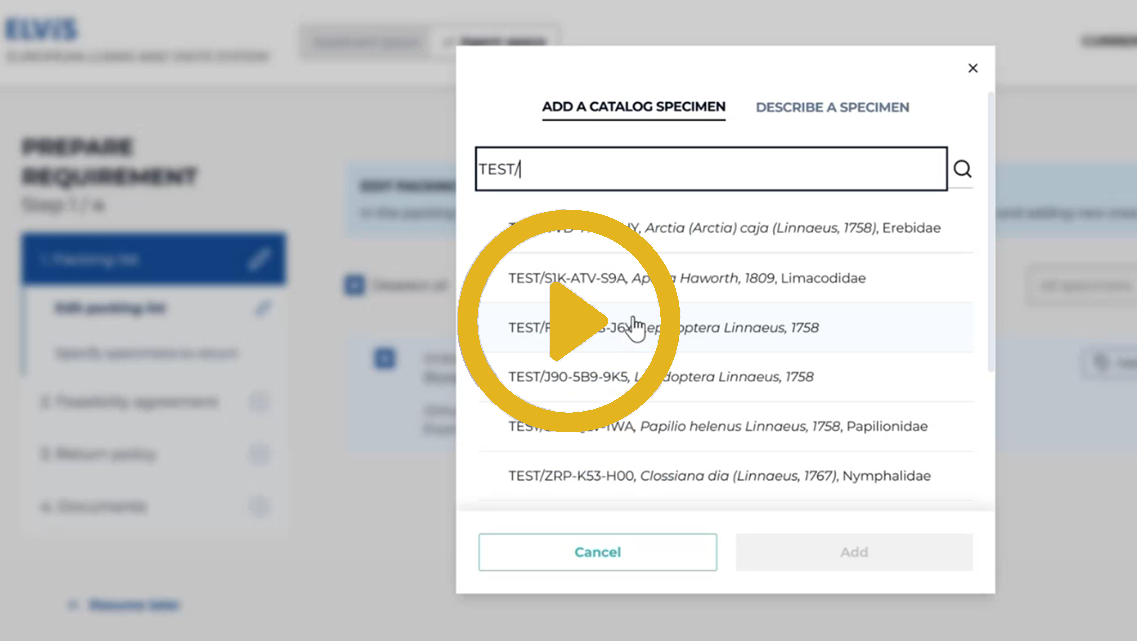
ELViS is waiting for you!
Our latest workshop focused on DiSSCo’s new system for European loans and visits to natural history collections. Scroll down to get the video, or click below for a report of the event.
Knowledge Area
DiSSCo technical demos
This section hosts a series of videos-demonstration sessions by DiSSCo’s development team at Naturalis Biodiversity Center. The demos show progress in the development of DiSSCo’s data infrastructure and core services but also other aspects of the technical infrastructure of DiSSCo RI.
DiSSCo RI demo sessions I (Feb 2024)
This first video offers an overview of what the team has been developing during the first two months of 2024: JSON schema’s exposed through schemas.dissco.tech; New version of openDS and annotations deployed on sandbox.dissco.tech; Deeper dive into Machine Annotation Service; Introduction of Machine Job Records; Development of generic taxonomic name resolution service, based on ChecklistBank data and GBIF matching algorithm; and more.
DiSSCo RI demo sessions II (Apr 2024)
The second demo session focuses on the Minimum Viable Product of the Digital Specimen Data Infrastructure that needs to be delivered at the end of the DiSSCo Transition project. It goes through topics such as the work that has been done for DiSSCo in the BiCIKL project, the first DiSSCo minted DOI’s, infrastructural upgrades, and perspectives for the future.
DiSSCo RI demo sessions III (Jun 2024)
This third demonstration of the progress of Task 3.1 focusses on two main topics. The first topic is batch annotation. In a pre-recorded demo, Soulaine Theocharides explains why batch annotation is vital to the success of DiSSCo. In the second part of the demo, we went over some data model changes. One of the most important parts to get right before launching the MVP is getting the data models right.
DiSSCo RI demo sessions IV (Aug 2024)
This video is the fourth one in the series of demonstration sessions by DiSSCo’s development team at Naturalis Biodiversity Center. It presents an update on implementation and Handle storage within the openDS data model, (which is being publicly reviewed at the time of this video’s publication). The video also provides an update on the DiSSCover annotation service interface. Finally, future steps for the next two months are also commented.
DiSSCo RI demo sessions V (Oct 2024)
This fifth demonstration of the progress of Task 3.1 focuses on some meaningful development that we have achieved with regard to the OpenDS data model, such as the FDO profiles, which have been updated to 1.0. We have also successfully ended the Open DS data model review, during which interesting feedback has been collected, and we have also implemented auto-accepted annotations when data is created/uploaded. These are but a few of the topics from the session. Watch now!
Knowledge Area
DiSSCo Transition workshops
DiSSCo Transition plans to organise four workshops during the project’s lifecycle. The first will discuss the legal status of the Research Infrastructure, while the other three will address technical designs and prototypes from DiSSCo’s technical team.
Latimer Core Workshop
Presented by Laurence Livermore, Matt Woodburn and Ben Norton during the TDWG-SPNHC 2024 conference.
Description: This workshop gives an overview of the newly ratified Latimer Core (LtC) TDWG data standard for describing groups of objects in natural science collections. The workshop goes through Latimer Core and its different applications, providing worked examples and examples of pilots use cases at different institutions, including the capturing of collection descriptions data prior to collection moves, or as a first pass to allow discovery and documentation prior to specimen-level digitisation.
The short read
Find here a concise, accesible overview of the Latimer Core Standard.
DiSSCo-CETAF
Registry Data Provision Workshop
Presented by Patrick Semal, Royal Belgian Institute of Natural Sciences
Description: The workshop gives an overview of the Specialisation Plan for DiSSCo and CETAF members and the necessary process to provide data on their institutions and to prepare data for publication to the CETAF Registry Collections Platform and, from there, be aggregated by the DiSSCo RI.
DiSSCo Transition workshop on Core Technical Infrastructure
Presented by Wouter Addink, Sam Leeflang (Naturalis Biodiversity Center) and Marko Lovric (CETAF)
Description: The workshop discusses the next steps in the development of the core infrastructure after the Minimum Viable Product has been completed. The current state of the MVP is demonstrated and options for further development outlined with backlog and use cases, after which an open discussion takes place
DiSSCo Management Platform and Taxon Hypotheses Standards
Presented by Urmas Kõljalg and Kessy Abarenkov (University of Tartu)
Description: The workshop is divided in two distinct sessions. Part 1 one focuses on DTP deliverable D3.3, followed by a demonstration of the DMP on the PlutoF platform. Part 2 aims to provide better understanding of the Taxon Concept Schema and the significant modifications introduced by the TCS 2 Task Group. IMPORTANT: Watch the recordings of Part1 and Part2.
DiSSCo Machine Annotation Service (MAS) Hackathon
Presented by Claus Wieland (Senckenberg)
Description: The hackathon aimed to integrate new MAS for DiSSCo’s curation and annotation platform DiSSCover. Three teams focused on the adoption of services for DiSSCo involving (i) taxamorph, a machine learning-based tool to highlight morphologically significant features of biological specimen, (ii) quality annotation of AI-generated herbarium sheets parts combining the tools LeafMachine and INDEED, and (iii) mapping of habitat descriptions to controlled vocabularies using Large Language Models based on Mistral AI and OntoGPT. In addition, the Machine Annotation Developer documentation was updated and extended, and supplemented by example notebooks demonstrating how to use the infrastructure.
The meeting showed convincingly, how DiSSCo’s e-service portfolio can be significantly extended by virtue of open standards – including notably the Open Digital Specimen data model – adopted by its design.
ELViS workshop
Presented by Maxime Griveau (Muséum national d’histoire naturelle)
Description: The workshop was an opportunity to present the progress of the MNHN on the ELViS tool. It took place in three parts:
1. General presentation of ELViS, its objectives, and a progress update on the product;
2. Presentation of the request process followed by an interactive Q&A session;
3. Presentation of the request processing circuit (for collection managers) followed by an interactive
Q&A session.
Knowledge Area
Videos and tutorials
PIDs, annotations, FAIR data… DiSSCo Transition deals with complex issues. The videos below will help you understand them and also some of DiSSCo’s main services and developments. Some of the videos demand previous knowledge of data-related concepts.
Knowledge Area
Articles and publications
DTP will publish all relevant papers in the DiSSCo collection at the Research Ideas and Outcomes (RIO) journal and other important publishers. Below you can also see a number of publications related to DiSSCo RI and some of the main concepts related to collection data and bioinformatics.
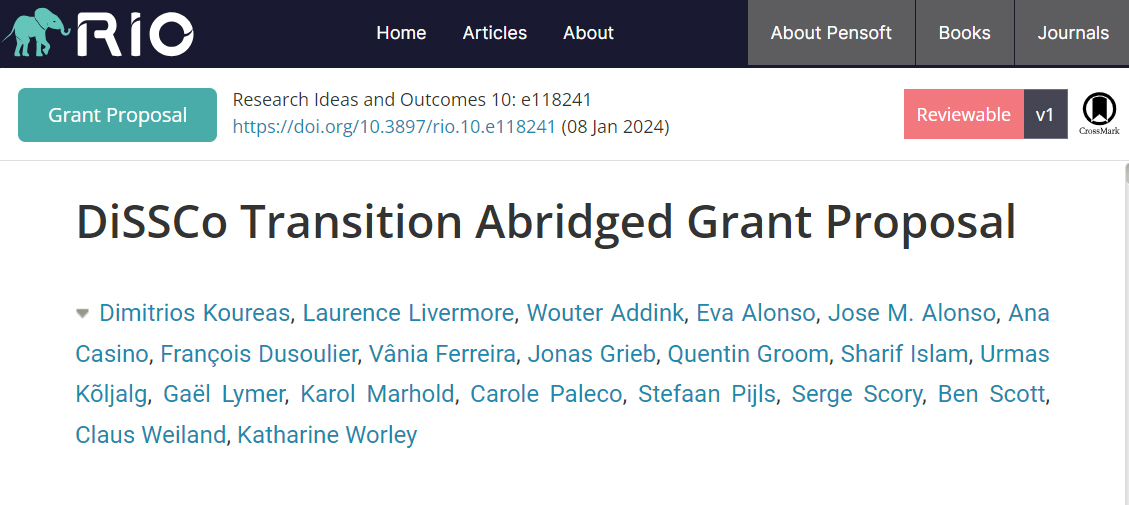
DiSSCo Transition Abridged Grant Proposal
This paper is an abridged version of the original proposal which was submitted in March 2023. It contains the overarching scientific case for DiSSCo Transition, alongside a description of the project’s major activities.
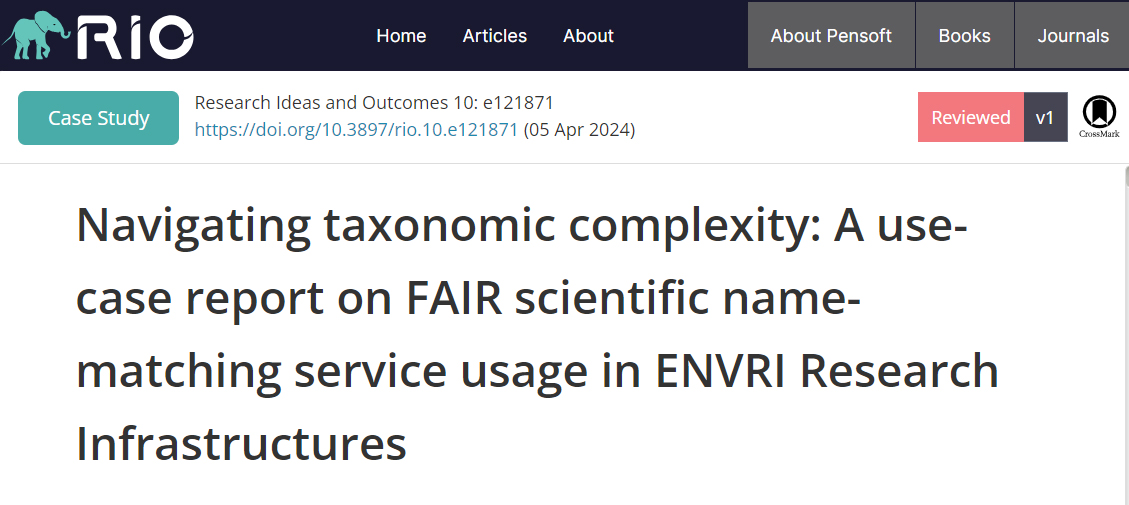
Navigating taxonomic complexity: A use-case report on FAIR scientific name-matching service usage in ENVRI Research Infrastructures
This paper presents a use-case conducted within the ENVRI FAIR project, examining challenges and opportunities in deploying FAIR-aligned (ensuring Findability, Accessibility, Interoperability and Reusability) scientific name-matching services across Environmental Research Infrastructures (RIs).
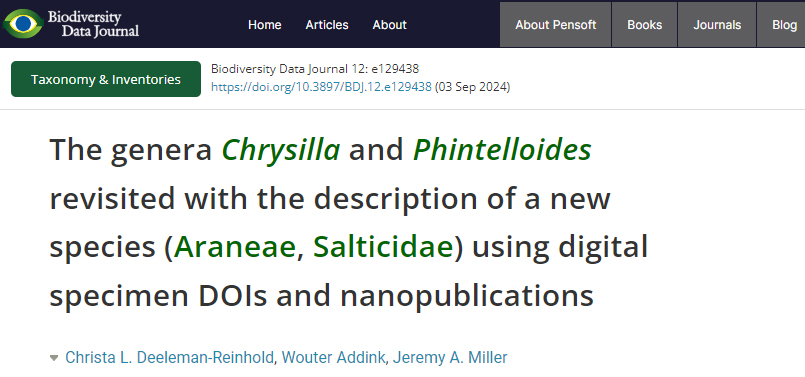
The genera Chrysilla and Phintelloides revisited with the description of a new species (Araneae, Salticidae) using digital specimen DOIs and nanopublications
First scientific publication using digital specimen DOIs.
For an acessible introductory piece about the relevance of digital specimen DOI, please go here.
For accessing the full text of the article (including a secion on DOIs) please, use the button below.
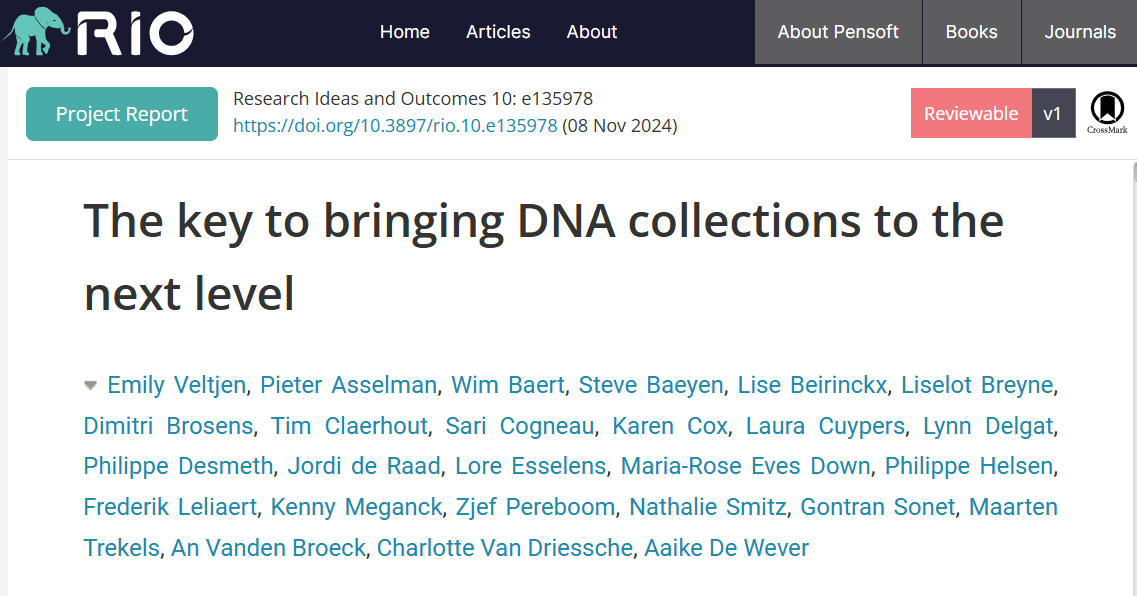
The key to bringing DNA collections to the next level
The DiSSCo Flanders DNA collection working group, aiming to advance and “unlock” their DNA collections, identified the need for: 1) actively sharing best practices regarding the management of DNA collections; and 2) providing guidance on how to bring theory into practice.
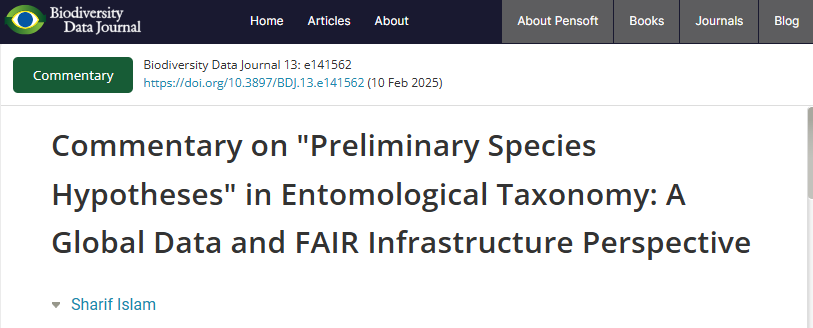
Commentary on “Preliminary Species Hypotheses” in Entomological Taxonomy: A Global Data and FAIR Infrastructure Perspective
What if early taxonomic findings were treated like preprints, open to iterative improvement or managed with practices from the open-source community, such as Git branching, merging and patch management? Prompted by Buckley’s article Charting a Future for Entomological Taxonomy in New Zealand (2024), this commentary explores these possibilities in the context of biodiversity informatics.

DiSSCo RI: the Cost Book for DiSSCo
The article outlines the first “centralised” cost calculation exercise for DiSSCo and concludes that the DiSSCo Central Hub office would need a minimum annual budget of 1.4 million euros to be operational. To calculate the RI linked costs, which are spread all over Europe, the article implements a cost calculation methodology that has been distributed amongst all the 170 DiSSCo partner institutions.

Extraction of Quantitative Specimen Data using Machine Learning as a Service in the DiSSCo Research Infrastructure

DiSSCo ERIC Socio-economic Impact Framework (Y1-Y5)
The report outlines a comprehensive socio-economic impact assessment framework for DiSSCo (SEIF), focused on its first five years of operation. The assessment is critical for demonstrating DiSSCo’s uniqueness and value in research and society in general. It maps from activities to outputs and outcomes, deriving impact. The framework recognises the non-linear nature of impact pathways, emphasising that various activities can lead to diverse outcomes based on their context and execution.
Knowledge Area
Other materials
Find below other outputs from DiSSCo Transition.
Get the Basics
Understand DiSSCo!
If you are not familiar with DiSSCo, just give yourself ten minutes to watch our corporate video and take a look at our services brochure. That alone will give you an understanding of why DiSSCo RI is needed and which are the changes that it will bring about for scientific research.
The basic downloads
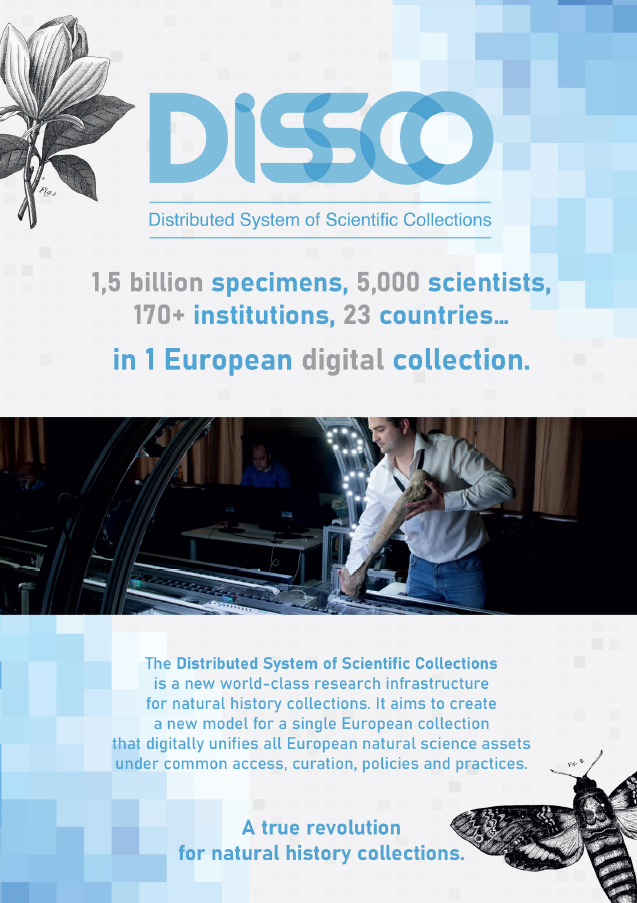
DiSSCo flyer 2024
